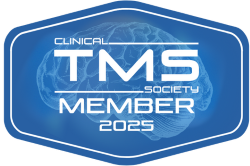
JOIN US! TMS Education Event - Tuesday, April 9th 5:30pm pst - Click to learn more!
TMS for Tinnitus: Alleviating Ringing in the Ears
25 million Americans suffer from tinnitus — a condition that causes persistent ringing, buzzing or whooshing sounds in the ears. The condition can be both debilitating and frustrating, significantly impacting quality of life.
While there is no one-size-fits-all cure for tinnitus, a promising treatment option has emerged in recent years called
transcranial magnetic stimulation (TMS). TMS is a non-invasive therapeutic therapy that uses targeted magnetic fields to stimulate specific areas of the brain. As an FDA-approved treatment for major depressive disorder (MDD), an expanding body of clinical research shows promising results for using TMS therapy to treat other conditions, such as obsessive compulsive disorder (OCD) and tinnitus.
In the context of tinnitus specifically, TMS has several advantages over alternative treatment protocols. Traditional treatments like hearing aids or sound therapy fail to address the underlying neurological causes of tinnitus, while TMS offers a unique approach to managing the condition where the relevant brain regions can be targeted.
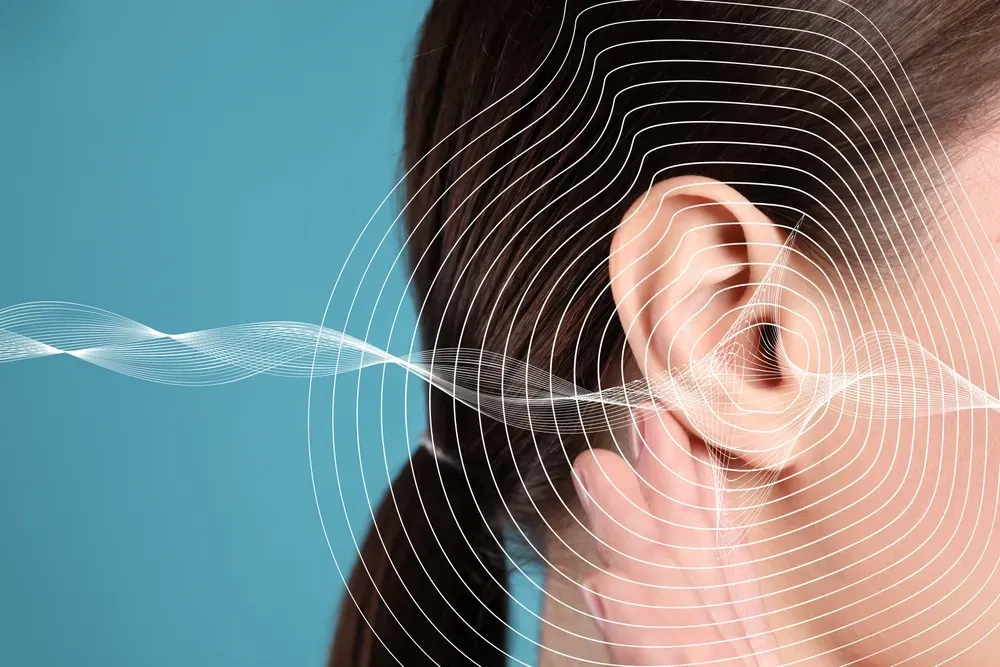
What is TMS for Tinnitus?
TMS is a non-invasive treatment approach that uses targeted magnetic fields to stimulate specific areas of the brain. During a TMS session, an electromagnetic coil is positioned near the head, generating brief magnetic pulses that pass through the skull and induce electrical currents in the underlying brain regions.
For treating tinnitus, which is the perception of ringing, buzzing, or other phantom sounds in the ears, TMS targets the areas of the brain responsible for auditory processing. The magnetic stimulation modulates the activity of these brain regions, disrupting the abnormal neural patterns that contribute to the perception of tinnitus sounds.
TMS for tinnitus typically involves a series of sessions, during which the electromagnetic coil is positioned over the temporal or parietal regions of the brain, which are known to play a role in the processing and perception of sound. By modulating the activity in these areas, TMS can reduce the intensity or severity of the perceived tinnitus sounds.
A
clinical study conducted by Liang et al. demonstrated the benefits of TMS in providing relief from tinnitus symptoms. The study found “significant improvements” after 1 week of a repetitive TMS (rTMS) treatment protocol, with some patients experiencing long-lasting improvements or even complete resolution of their tinnitus.
Understanding Tinnitus and Its Causes
Tinnitus is the medical term for the perception of sound in the ears or head when no external sound source is present. These phantom sounds include ringing, buzzing, hissing, whistling, or other noises. Tinnitus can be experienced in one or both ears and can range in severity from a mild annoyance to a debilitating condition.
The most common type of tinnitus is subjective tinnitus, where only the affected individual can hear the phantom sounds. Subjective tinnitus is often associated with underlying conditions such as age-related hearing loss, noise-induced hearing damage, or circulatory problems.
Other
types include sensory tinnitus and somatic tinnitus. The least common type is pulsatile tinnitus, or objective tinnitus, where sounds can be heard by an outside observer often in time with the patient’s heartbeat.
What causes tinnitus?
The main causes of tinnitus are age-related hearing loss, noise-induced hearing damage, or other forms of cochlear damage. Additionally, both high blood pressure and trauma to the head or neck can also affect the auditory system and cause the condition.
Several areas of the brain are involved in the perception of tinnitus, including the auditory cortex, which processes sound information, and the limbic system, which is responsible for emotional processing and attention. The prefrontal cortex can also play a role in the perception of tinnitus.
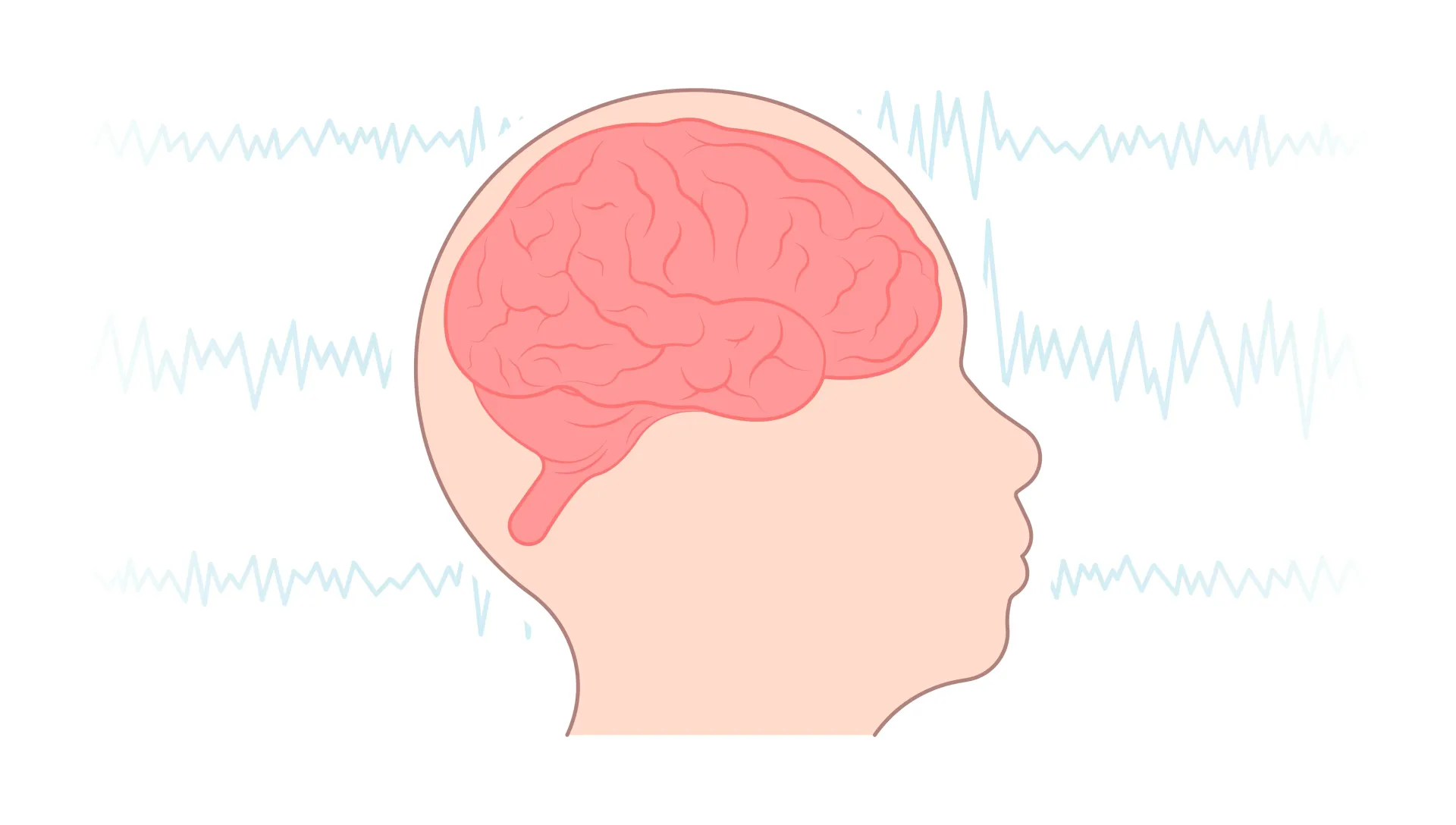
The Benefits of TMS for Tinnitus
One of the key mechanisms behind the effectiveness of TMS for tinnitus is its ability to stimulate activity in specific parts of the brain. Magnetic pulses can target areas like the auditory cortex, helping to alleviate symptoms and reduce the patient’s distress.
Importantly, TMS may also have beneficial effects on improving blood flow in the brain. The electromagnetic stimulation is thought to promote increased cerebral blood flow and oxygenation in the targeted areas.
This improved blood flow helps to normalize neural activity. Conditions like high blood pressure or compromised blood vessel function have been linked to tinnitus, so improving blood flow also helps to alleviate symptoms.
How TMS for Tinnitus Works
TMS is based on the principles of electromagnetic induction, which is the generation of an electric current in a conductive material when exposed to a changing magnetic field. In the case of TMS, the conductive material is the brain tissue itself. The magnetic field stimulates neurons in the brain which can activate or inhibit neural pathways.
The electromagnetic coil can be precisely positioned over regions like the auditory cortex, which is responsible for processing sound information, or other areas associated with tinnitus perception, such as the limbic system and prefrontal cortex.
Stimulating these brain regions can reorganize abnormal neural activity patterns. For patients who suffer from tinnitus, TMS can target brain regions that contribute to the perception of phantom sounds. This modulation of brain activity provides significant therapeutic effects.
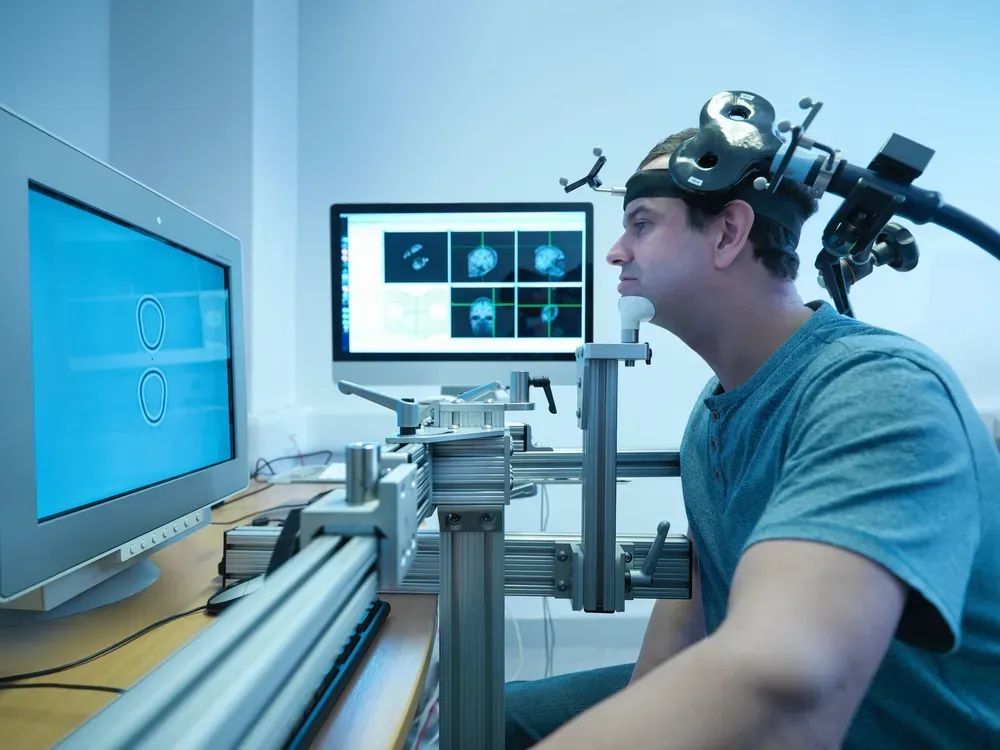
The TMS Treatment Protocol
The typical treatment protocol for TMS therapy can vary — some protocols include daily sessions over an extended period of time, while others involve a higher frequency of treatments condensed into a shorter time frame. During each session, the electromagnetic coil is positioned over the targeted brain region, with precise parameters tailored to the individual patient's needs.
Finding the right treatment protocol depends on several factors, including the severity of tinnitus and the patient’s response to therapy. Kind Health TMS offers 3 treatment packages that have different treatment durations. Our
accelerated TMS (aTMS) protocol is the gold standard for alleviating tinnitus symptoms, with patients experiencing significant improvement in as little as 5 days.
Leveraging the principles of electromagnetic induction and precisely targeting the brain regions involved in tinnitus perception makes TMS a promising therapeutic approach. The treatment’s non-invasive nature also means that it’s a well-tolerated treatment option, with few significant side effects reported in clinical studies.
Preparing for TMS Treatment
Certain conditions, such as a history of seizures, metal implants in the head or neck region, or certain types of implanted medical devices, may make TMS treatment unsuitable as a treatment option. So, it’s crucial to discuss your medical history and any underlying conditions with a qualified healthcare professional before receiving treatment.
Any underlying medical conditions that could potentially contribute to tinnitus symptoms should be thoroughly evaluated. Conditions like high blood pressure, cardiovascular disease, or neurological disorders may impact the effectiveness of TMS treatment or require additional considerations.
Once your medical history and any underlying conditions have been carefully reviewed, the healthcare provider can better assess the potential effects of TMS and determine the appropriate treatment protocol tailored to your specific needs.

A Final Word
TMS uses powerful magnetic fields to induce electrical currents in specific brain regions, which makes it an effective treatment option for patients who suffer from tinnitus. Activity in the auditory cortex, limbic system, and prefrontal cortex can be modulated, which can disrupt the abnormal neural patterns that contribute to the perception of phantom sounds.
If you're struggling with persistent or severe tinnitus, consider exploring TMS as an effective treatment option. Contact
Kind Health TMS today to schedule a consultation and learn more about how TMS can provide long-term relief from tinnitus symptoms.

Meet the Author
Dr. Georgine Nanos, MD, MPH
Founder of Kind Health Group
If this is a life-threatening emergency, please call 911 or the National Suicide Prevention Lifeline














































